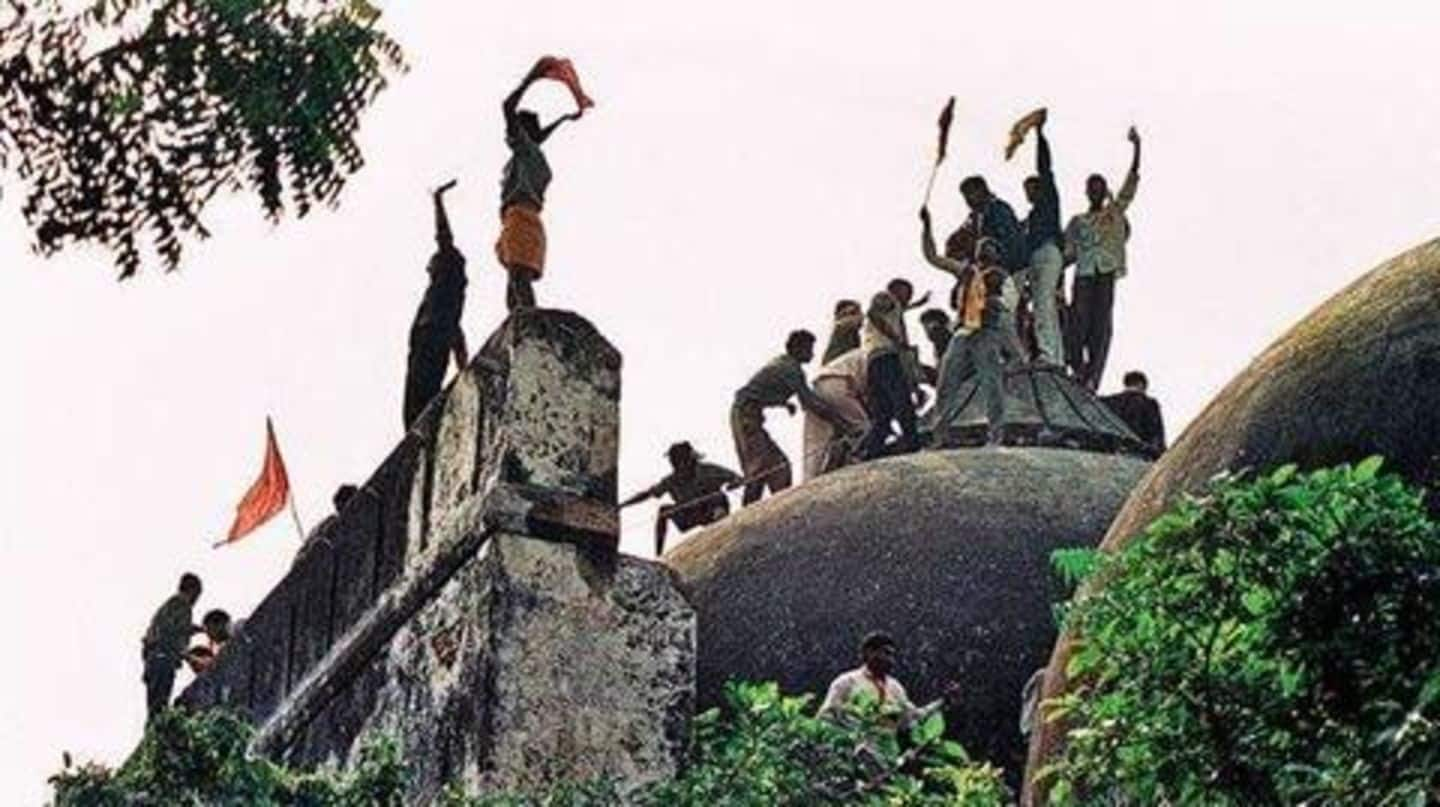
#AyodhyaDispute: Don't decide case on Hindus' belief, suggests Muslims' lawyer
What's the story
The lawyer of Muslim parties in the Babri Masjid-Ram Janmabhoomi dispute urged the Supreme Court on Monday to not give a verdict in the sensitive case based only on the beliefs of Hindus while "glossing over" facts. Senior lawyer Rajeev Dhavan made these remarks on the seventeenth day of hearing in the top court. Notably, the Hindu side has completed their arguments. Here's more.
Context
At center of dispute, is a small piece of land
The Ayodhya dispute, pertaining to 2.77 acres land, gained immense momentum in the late 1980s and reached a top point after Babri Masjid was demolished in 1992 by Hindu activists. The demolition, driven by the belief that a temple of Lord Rama existed where 16th-century Babri Masjid stood, sparked widespread riots. In 2010, all three warring parties got an equal share of the land.
Argument
Dhavan told SC its verdict will affect India's secular fabric
After languishing in SC for years, and a failed attempt at mediation, daily hearings in the crucial case started on August 6. Dhavan told the constitutional bench, headed by Chief Justice of India Ranjan Gogoi, that their verdict will have a direct impact on the secular fabric of Constitution and the future of the country. He claimed Muslims are rightful owners of the site.
Quote
Historical facts could lead to erroneous conclusions: Dhavan
"As far as title suit of civil nature is concerned, there is no room of historical facts and sometimes, they will lead to erroneous conclusions," he told the bench, also comprising Justices SA Bobde, DY Chandrachud, Ashok Bhushan and SA Nazeer.
Proceedings
"Does a peacock or lotus in slab mean it's Hindu-structure?"
Dhavan went on to ask the bench how will the court determine the exact location of Lord Rama's birthplace. "There are no Hindu motifs in Babri Masjid. Just because a peacock or a lotus picture was found on some slab, does it mean it was a Hindu structure?" Dhavan asked. He also said Babri Masjid was attacked in 1934.
Quote
Dhavan cited history to support his claim
"In 1934, you (Hindus) break the Masjid and in 1949, you commit trespass and finally, in 1992, you demolish the mosque...and after all the destructions, you say that the Britishers collaborated against Hindus and now say that our right must be protected, (sic)" Dhavan said.
Details
Further, Dhavan rejected ASI report which spoke about temple's existence
Further, Dhavan also dismissed an Archaeological Survey of India (ASI) report which said a huge Hindu structure existed at the very spot. "The ASI dug 90 trenches and found some Hindu structure dating back to several periods of history. This means these structures belonged to several periods and which had become ruins. When the mosque was built, it was over barren land," he argued.
Notice
Meanwhile, two men who "threatened" Dhavan were served notices
Separately, on Tuesday, SC served notices to two men for allegedly threatening Dhavan, as he is representing Sunni Waqf Board and other Muslim parties. The two have been identified as a retired education officer, N Shanmugam, and a Rajasthan resident, Sanjay Kalal Bajrangi. While Shanmugam allegedly sent a letter, Bajrangi texted Dhavan on WhatsApp. Dhavan said he was accosted both at home and office.